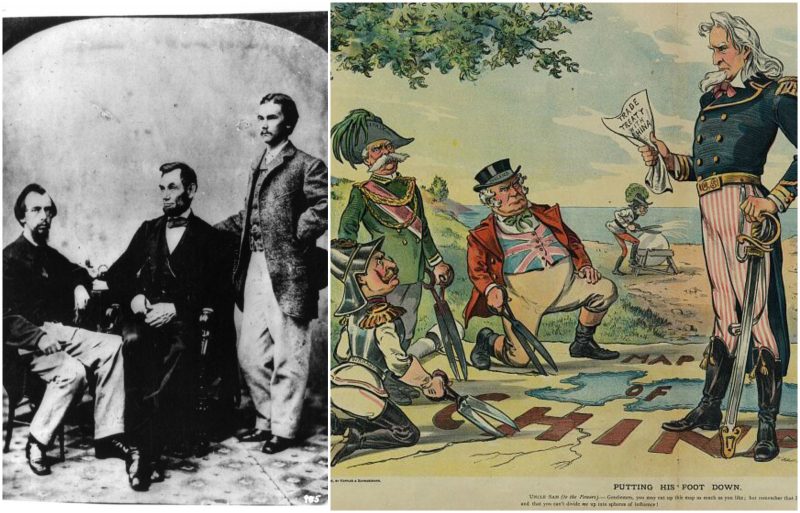With over 40 years of political experience under his belt, John Milton Hay’s influence on the American government and its policy has been crucial, cemented as a historical turning point in the Foreign Affairs of the US. His most valued political contribution was articulating and proposing his Open Door policy, five years before his death.
The highly important Open Door policy was initiated by Hay at the end of the 19th century. It addressed the protection of equal privileges and priorities among the countries that traded with China. Being an imperative economic player, Hay thought that China must remain open for equal trade without prioritizing power between states.
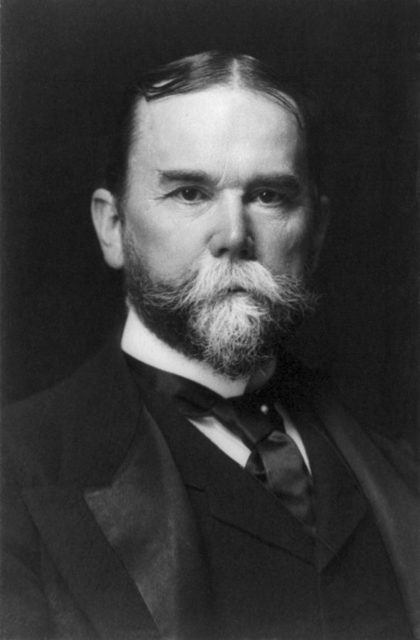
Born in a tolerant, anti-slavery family in Salem, Indiana, young John Hay showed a penchant for writing literature and poetry, but would later prove a very adept statesman, governing important state issues. Hay served in office as the secretary of President William McKinley (until his assassination) and President Theodore Roosevelt. He is also famous for the Hay-Paunceforte Treaty and his involvement in the construction of the Panama Canal.
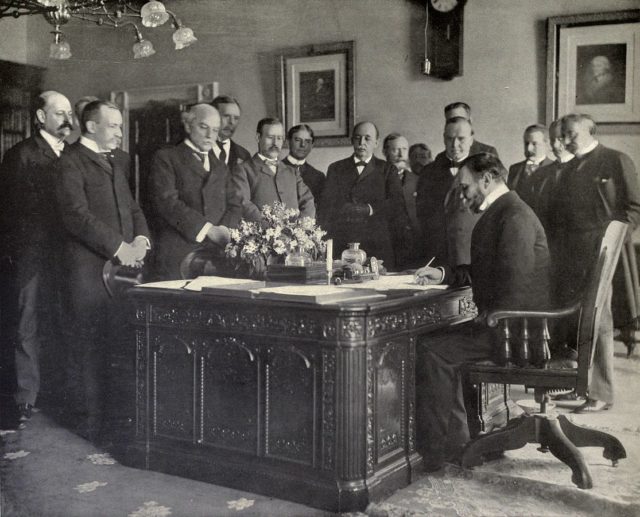
John Hay is mostly remembered as the private secretary and confidant of president Abraham Lincoln from 1861 to 1865. Familiar with Lincoln and his historical influence on the US, he co-authored Lincoln’s biography with John George Nicolay, highlighting his presidency and life. After Lincoln’s death, he worked for the New York Tribune, wrote novels and poetry, and returned to his government service as a secretary of state. He died on July 1, 1905, in Newbury, New Hampshire.
Hay’s promotion of the “Open Door” policy in China (September 6th, 1900) which allowed trade access to China for many countries, was accepted and praised in the US, as an answer to its economic depression at the end of the 19th century. It supported the territorial integrity of China and it was issued in forms of notes that were sent to Germany, Britain, France, Russia, Japan, and Italy.
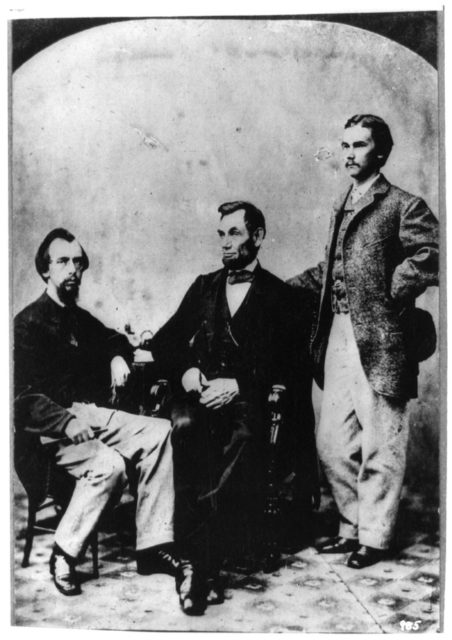
Allegedly, the Open Door Policy has its origins during the First Opium War in 1840 and the peace treaties that followed. The Berlin conference of 1885 also saw notions of the Open Door concept for the preferential duties in Congo.
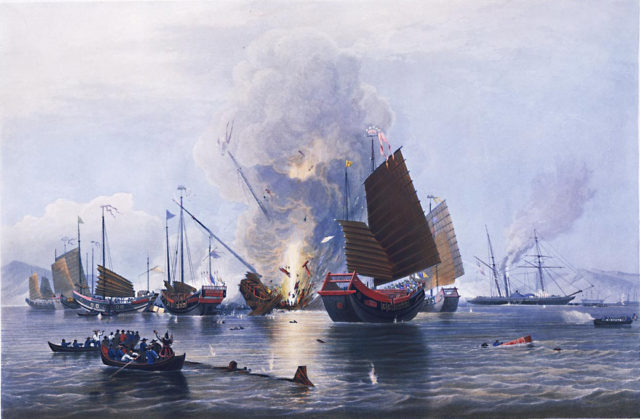
The Anglo-Chinese Treaties of Nanking in 1842 supported the first idea of China having equal priority access for trading partners, as Britain greatly benefited from China’s market. With the market being thrown off balance by an overwhelming demand for Chinese silk, tea, porcelain, and other goods, this made many European countries scramble for solutions.
Hay simply proposed a free market which gave free trading access to foreign merchants that operated in China. He believed that this policy would prevent disputes which threatened state integrity and benefit the US economy as well, resulting in a win-win situation for everyone. He also suggested the Chinese should collect the tariffs from the market.
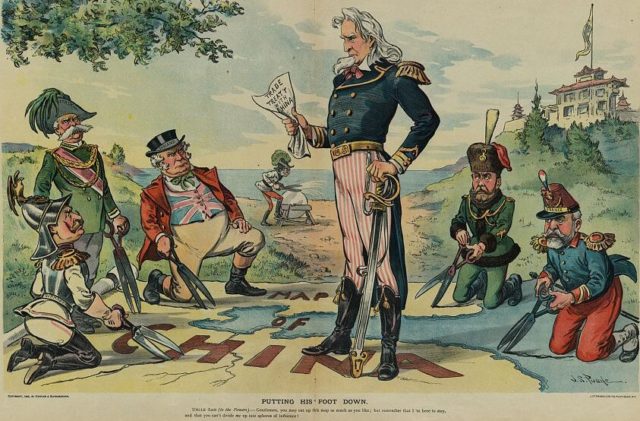
The “spheres of influence”garnered fear that the countries would monopolize trade while dividing China into partitions of influence, which would eventually result in economic and social catastrophe. The sheer influence of the great powers would divide the country into colonies, having a negative impact on the social standard of the Chinese people.
Problems arose in 1900 when Chinese renegades began assaulting foreign missionaries, merchants, and Chinese Christians, in opposition to the Open Doors Policy. This violent outburst was named the Boxer Rebellion because many of the rebels were professional martial artists and fighters.
Hundreds of foreigners and Chinese people who supported Western standards were killed. Hay sent out letters to the countries, emphasizing the importance of China’s state integrity and influence and the events quickly settled down.
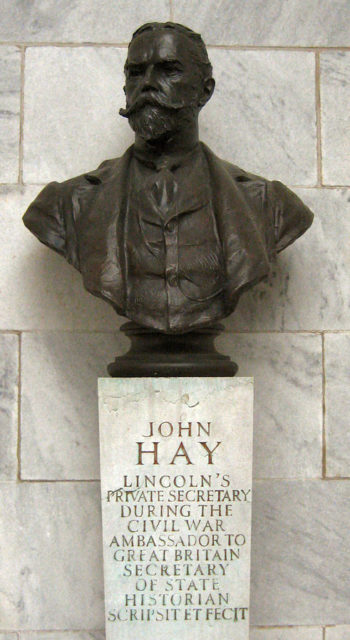
The basic principle of non-discrimination in this newly formed free trade market was of extreme importance, as Hay had strong humanitarian beliefs of international equality, non-violence, and prosperity among people.
Even though they didn’t quite agree with the policy’s terms, not one of the countries openly complained about them.
